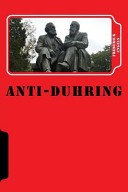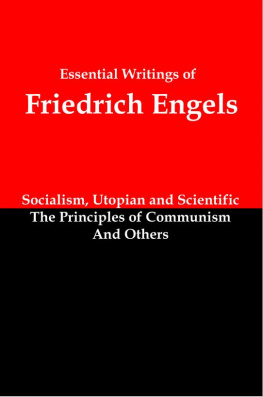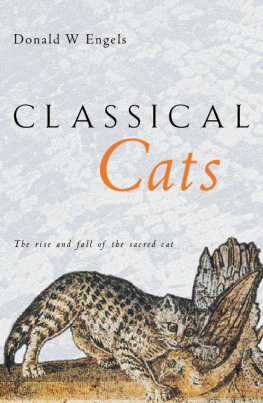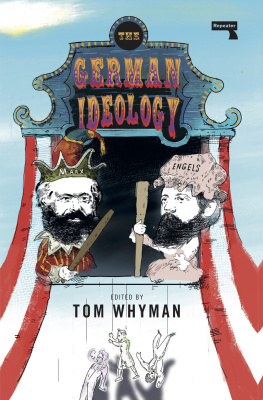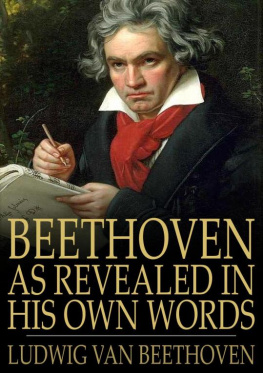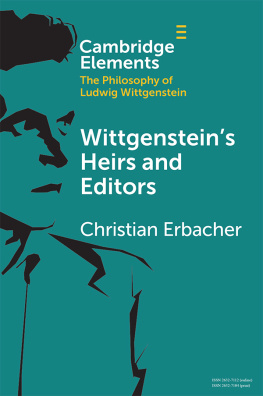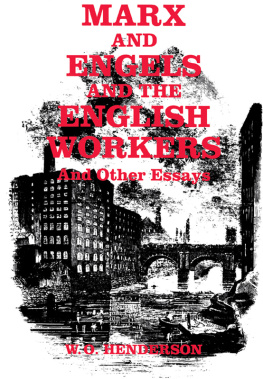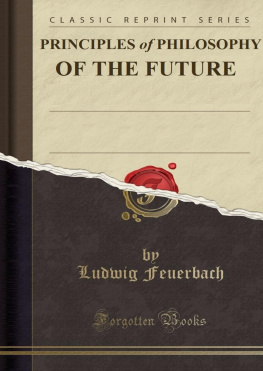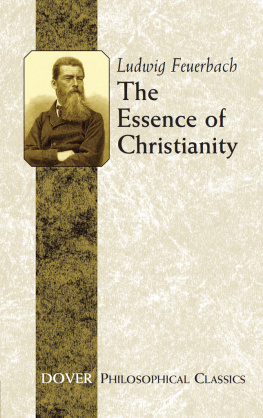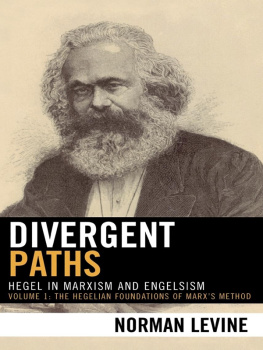Engels - Ludwig Feuerbach and the End of Classical German Philosophy
Here you can read online Engels - Ludwig Feuerbach and the End of Classical German Philosophy full text of the book (entire story) in english for free. Download pdf and epub, get meaning, cover and reviews about this ebook. publisher: Marxists Internet Archive, genre: Religion. Description of the work, (preface) as well as reviews are available. Best literature library LitArk.com created for fans of good reading and offers a wide selection of genres:
Romance novel
Science fiction
Adventure
Detective
Science
History
Home and family
Prose
Art
Politics
Computer
Non-fiction
Religion
Business
Children
Humor
Choose a favorite category and find really read worthwhile books. Enjoy immersion in the world of imagination, feel the emotions of the characters or learn something new for yourself, make an fascinating discovery.

Ludwig Feuerbach and the End of Classical German Philosophy: summary, description and annotation
We offer to read an annotation, description, summary or preface (depends on what the author of the book "Ludwig Feuerbach and the End of Classical German Philosophy" wrote himself). If you haven't found the necessary information about the book — write in the comments, we will try to find it.
Ludwig Feuerbach and the End of Classical German Philosophy — read online for free the complete book (whole text) full work
Below is the text of the book, divided by pages. System saving the place of the last page read, allows you to conveniently read the book "Ludwig Feuerbach and the End of Classical German Philosophy" online for free, without having to search again every time where you left off. Put a bookmark, and you can go to the page where you finished reading at any time.
Font size:
Interval:
Bookmark:
Ludwig Feuerbach and the End of Classical German Philosophy
Fred e rick Engels
Written : 1886;
First Published : 1886, in Die Neue Zeit;
Source : Progress Publishers edition;
Translated : by Progress Publishers in 1946;
Transcription/Markup : Paul Taylor;
Proofed : Jim W. Jaszewski, 2003;
Online Version : Marx Engels Internet Archive 1994.
Ebook by : Eleanor
HTML : https://www.marxists.org/archive/marx/works/1886/ludwig-feuerbach/
In the preface to A Contribution to the Critique of Political Economy, published in Berlin, 1859, Karl Marx relates how the two of us in Brussels in the year 1845 set about: to work out in common the opposition of our view the materialist conception of history which was elaborated mainly by Marx to the ideological view of German philosophy, in fact, to settle accounts with our erstwhile philosophical conscience. The resolve was carried out in the form of a criticism of post-Hegelian philosophy. The manuscript, two large octavo volumes, had long reached its place of publication in Westphalia when we received the news that altered circumstances did not allow of its being printed. We abandoned the manuscript to the gnawing criticism of the mice all the more willingly as we had achieved our main purpose self-clarification!
Since then more than 40 years have elapsed and Marx died without either of us having had an opportunity of returning to the subject. We have expressed ourselves in various places regarding our relation to Hegel, but nowhere in a comprehensive, connected account. To Feuerbach, who after all in many respects forms an intermediate link between Hegelian philosophy and our conception, we never returned.
In the meantime, the Marxist world outlook has found representatives far beyond the boundaries of Germany and Europe and in all the literary languages of the world. On the other hand, classical German philosophy is experiencing a kind of rebirth abroad, especially in England and Scandinavia, and even in Germany itself people appear to be getting tired of the paupers broth of eclecticism which is ladled out in the universities there under the name of philosophy.
In these circumstances, a short, coherent account of our relation to the Hegelian philosophy, of how we proceeded, as well as of how we separated, from it, appeared to me to be required more and more. Equally, a full acknowledgement of the influence which Feuerbach, more than any other post-Hegelian philosopher, had upon us during our period of storm and stress, appeared to me to be an undischarged debt of honor. I therefore willingly seized the opportunity when the editors of Neue Zeit asked me for a critical review of Starckes book on Feuerbach. My contribution was published in that journal in the fourth and fifth numbers of 1886 and appears here in revised form as a separate publication.
Before sending these lines to press, I have once again ferreted out and looked over the old manuscript of 184546 [The German Ideology].
The section dealing with Feuerbach is not completed. The finished portion consists of an exposition of the materialist conception of history which proves only how incomplete our knowledge of economic history still was at that time. It contains no criticism of Feuerbachs doctrine itself; for the present purposes, therefore, it was unusable. On the other hand, in an old notebook of Marxs I have found the 11 Theses on Feuerbach, printed here as an appendix.
These are notes hurriedly scribbled down for later elaboration, absolutely not intended for publication, but invaluable as the first document in which is deposited the brilliant germ of the new world outlook.
Frederick Engels
London
February 21, 1888
The volume before us carries us back to a period which, although in time no more than a generation behind us, has become as foreign to the present generation in Germany as if it were already a hundred years old. Yet it was the period of Germanys preparation for the Revolution of 1848; and all that has happened since then in our country has been merely a continuation of 1848, merely the execution of the last will and testament of the revolution.
Just as in France in the 18th century, so in Germany in the 19th, a philosophical revolution ushered in the political collapse. But how different the two looked! The French were in open combat against all official science, against the church and often also against the state; their writings were printed across the frontier, in Holland or England, while they themselves were often in jeopardy of imprisonment in the Bastille. On the other hand, the Germans were professors, state-appointed instructors of youth; their writings were recognized textbooks, and the termination system of the whole development the Hegelian system was even raised, as it were, to the rank of a royal Prussian philosophy of state! Was it possible that a revolution could hide behind these professors, behind their obscure, pedantic phrases, their ponderous, wearisome sentences? Were not precisely these people who were then regarded as the representatives of the revolution, the liberals, the bitterest opponents of this brain-confusing philosophy? But what neither the government nor the liberals saw was seen at least by one man as early as 1833, and this man was indeed none other than Heinrich Heine.
Let us take an example. No philosophical proposition has earned more gratitude from narrow-minded governments and wrath from equally narrow-minded liberals than Hegels famous statement: All that is real is rational; and all that is rational is real. That was tangibly a sanctification of things that be, a philosophical benediction bestowed upon despotism, police government, Star Chamber proceedings and censorship. That is how Frederick William III and how his subjects understood it. But according to Hegel certainly not everything that exists is also real, without further qualification. For Hegel the attribute of reality belongs only to that which at the same time is necessary: In the course of its development reality proves to be necessity. A particular governmental measure Hegel himself cites the example of a certain tax regulation is therefore for him by no means real without qualification. That which is necessary, however, proves itself in the last resort to be also rational; and, applied to the Prussian state of that time, the Hegelian proposition, therefore, merely means: this state is rational, corresponds to reason, insofar as it is necessary; and if it nevertheless appears to us to be evil, but still, in spite of its evil character, continues to exist, then the evil character of the government is justified and explained by the corresponding evil character of its subjects. The Prussians of that day had the government that they deserved.
Now, according to Hegel, reality is, however, in no way an attribute predictable of any given state of affairs, social or political, in all circumstances and at all times. On the contrary. The Roman Republic was real, but so was the Roman Empire, which superseded it. In 1789, the French monarchy had become so unreal, that is to say, so robbed of all necessity, so irrational, that it had to be destroyed by the Great Revolution, of which Hegel always speaks with the greatest enthusiasm. In this case, therefore, the monarchy was the unreal and the revolution the real. And so, in the course of development, all that was previously real becomes unreal, loses it necessity, its right of existence, its rationality. And in the place of moribund reality comes a new, viable reality peacefully if the old has enough intelligence to go to its death without a struggle; forcibly if it resists this necessity. Thus the Hegelian proposition turns into its opposite through Hegelian dialectics itself: All that is real in the sphere of human history, becomes irrational in the process of time, is therefore irrational by its very destination, is tainted beforehand with irrationality, and everything which is rational in the minds of men is destined to become real, however much it may contradict existing apparent reality. In accordance with all the rules of the Hegelian method of thought, the proposition of the rationality of everything which is real resolves itself into the other proposition: All that exists deserves to perish.
Next pageFont size:
Interval:
Bookmark:
Similar books «Ludwig Feuerbach and the End of Classical German Philosophy»
Look at similar books to Ludwig Feuerbach and the End of Classical German Philosophy. We have selected literature similar in name and meaning in the hope of providing readers with more options to find new, interesting, not yet read works.
Discussion, reviews of the book Ludwig Feuerbach and the End of Classical German Philosophy and just readers' own opinions. Leave your comments, write what you think about the work, its meaning or the main characters. Specify what exactly you liked and what you didn't like, and why you think so.

